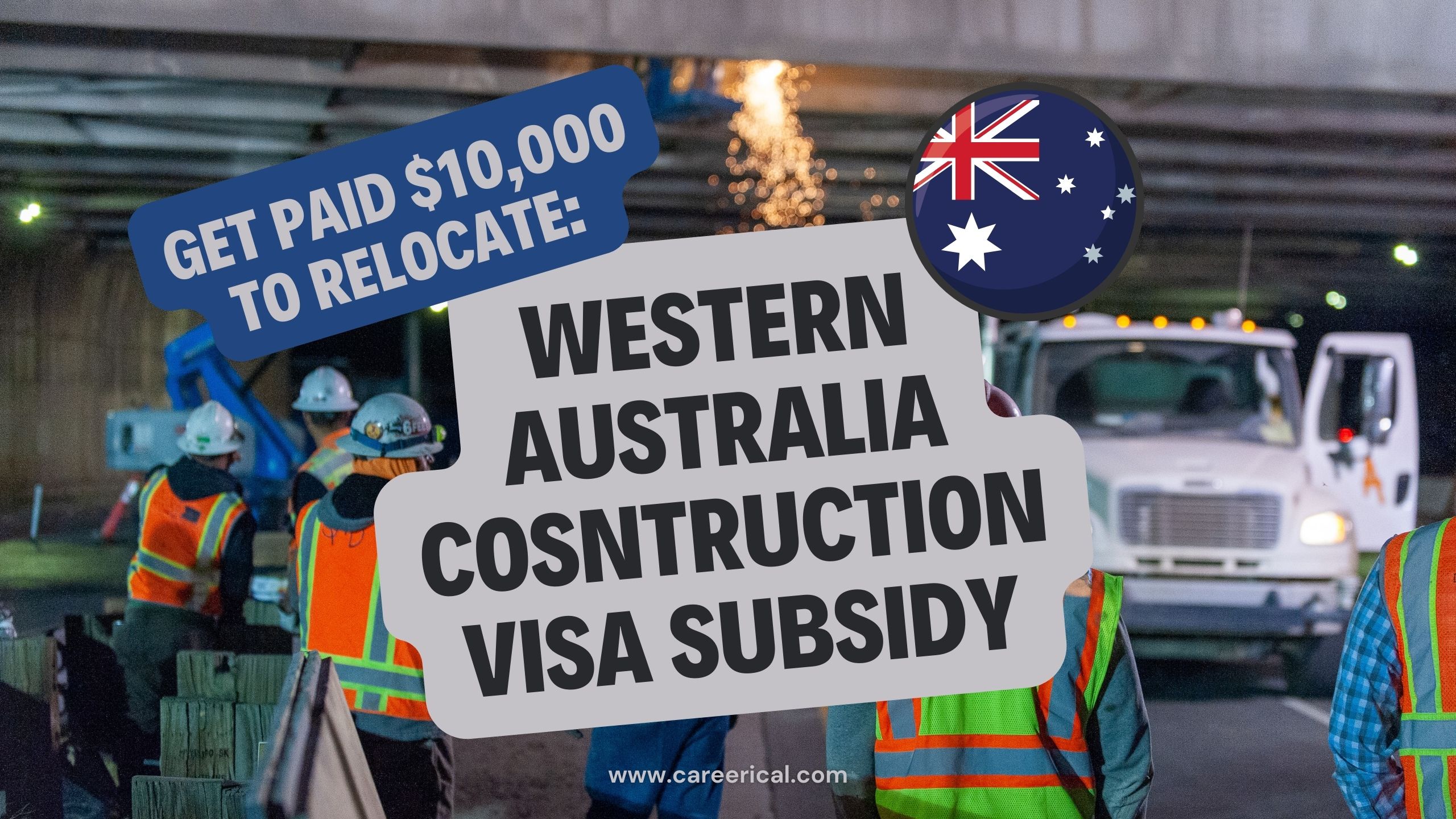While relocating to a new country typically involves significant expenses, it’s possible to move to Australia without much money if you plan carefully and take advantage of available options. Here is how to achieve that.
Is It Possible to Move to Australia Without Money?
Yes, it’s possible, but it requires strategic planning, resourcefulness, and a strong commitment. Moving to Australia without money means you’ll need to rely on work opportunities, visa sponsorships, and affordable or free support systems to make the transition.
Below are the essential steps to successfully move to Australia with minimal financial resources.
Step 1: Research Visa Options That Offer Employment
Australia offers several visa options for individuals who want to move and work in the country. Many of these visas allow you to earn money as soon as you arrive, making it easier to cover living costs.
Here are the key visa options that allow you to work legally in Australia:
- Working Holiday Visa (Subclass 417 or 462)
- Overview: This visa is for young people (18-30, or 35 for some countries) who want to work and travel in Australia for up to one year. The visa allows you to work for an employer for up to six months and travel around the country.
- Eligibility: Available to citizens of certain countries, including the UK, USA, and Canada. Applicants must meet specific health, character, and financial requirements (although these can be flexible).
- Benefits: Allows you to earn money while you explore Australia, with the possibility of extending the visa for another year by completing specific types of work (such as farm work).
- Challenges: You’ll need a small amount of savings to apply, as the visa has minimum financial requirements, but you can start earning as soon as you arrive.
- Temporary Skill Shortage (TSS) Visa (Subclass 482)
- Overview: This visa allows Australian employers to sponsor skilled workers for jobs they cannot fill locally. It’s one of the most common pathways for skilled professionals looking to move to Australia with a job offer.
- Eligibility: Your occupation must be on the Short-Term Skilled Occupation List (STSOL) or Medium and Long-Term Strategic Skills List (MLTSSL). You also need to demonstrate proficiency in English and have relevant work experience.
- Benefits: Visa sponsorship means that your employer covers some of the moving and visa costs, allowing you to move with minimal upfront expenses.
- Challenges: Securing a job offer from an Australian employer before moving can take time.
- Skilled Independent Visa (Subclass 189)
- Overview: This visa is for skilled workers who have qualifications and experience in high-demand occupations. It doesn’t require employer sponsorship, making it a flexible option for skilled migrants.
- Eligibility: Applicants must score at least 65 points on a points-based immigration system, which assesses factors such as age, skills, qualifications, and English language ability.
- Benefits: Permanent residency allows you to live and work in Australia indefinitely.
- Challenges: The application process can be lengthy and may require some upfront costs for skills assessments and other paperwork.
- Regional Sponsored Migration Scheme (RSMS) Visa (Subclass 187)
- Overview: This visa is designed to attract skilled workers to regional areas of Australia. It offers a pathway to permanent residency for workers who accept a job in regional or rural areas.
- Eligibility: Applicants must have a job offer from an approved employer in a regional area.
- Benefits: Employers may cover the cost of the move, and regional areas often have lower living costs.
- Challenges: Jobs in regional areas may be limited compared to major cities.
Step 2: Secure a Job Before You Arrive
To move to Australia without money, you’ll need to secure a job before you leave. Having a job offer will not only make the visa process smoother but will also ensure you have an income when you arrive. Here’s how to go about finding a job in Australia from abroad:
- Research Industries in Demand
- Key Sectors: Australia has labor shortages in industries such as healthcare, construction, hospitality, and agriculture. Focus on industries that are actively seeking foreign workers and offering visa sponsorship.
- Popular Occupations: Nurses, electricians, carpenters, chefs, and IT professionals are in high demand. If you have skills in these areas, you may have a better chance of securing a job offer.
- Use Online Job Boards
- Seek (seek.com.au) and Indeed Australia (au.indeed.com) are excellent platforms to find job opportunities in Australia. Look for positions that explicitly mention visa sponsorship or are in high-demand fields.
- LinkedIn: Make sure your LinkedIn profile is up-to-date, and actively network with Australian employers and recruiters. Many professionals secure job offers through LinkedIn connections.
- Apply for Jobs in Regional Areas
- Regional areas in Australia often have fewer job seekers, increasing your chances of securing employment. Many of these areas also offer visa sponsorships and have lower living costs than major cities like Sydney or Melbourne.
- Consider Temporary Work or Seasonal Jobs
- Short-term jobs, such as those in fruit picking, hospitality, or tourism, often offer visa sponsorships and allow you to earn money quickly upon arrival. You can use these jobs as a stepping stone while looking for more permanent work.
Step 3: Leverage Accommodation and Relocation Assistance
Moving to Australia with no money means finding ways to minimize living expenses when you first arrive. Some options include:
- Employer-Sponsored Accommodation
- If you secure a job before you arrive, some employers may offer temporary accommodation or relocation assistance. This can significantly reduce your costs during the first few months in Australia.
- Hostels and Budget Accommodation
- If you’re arriving on a Working Holiday Visa, hostels are an affordable option while you look for long-term accommodation. Many hostels in Australia also offer work-for-accommodation programs, allowing you to stay for free in exchange for a few hours of work each day.
- Couchsurfing or Staying with Friends/Family
- If you know someone living in Australia, reach out to see if you can stay with them for a short period while you settle in. Alternatively, Couchsurfing.com offers free accommodation options with locals willing to host travelers.
Step 4: Plan for Basic Living Expenses
While you may be able to minimize costs by securing accommodation and a job before arrival, you will still need to cover basic living expenses, such as food and transportation, during your first few weeks. Here’s how to manage:
- Budget Carefully
- Australia has a relatively high cost of living, so you’ll need to budget wisely. Use apps like Mint or YNAB to track your expenses and ensure you’re not overspending.
- Cost of Living: A basic meal can cost around AUD 15-20, while rent in major cities may range from AUD 300-500 per week. Regional areas tend to be more affordable.
- Look for Free or Affordable Resources
- Take advantage of free resources, such as public transportation passes, community centers, or free events in the area where you’ll be staying.
- Many supermarkets offer discounted food near closing time, which can help reduce grocery costs.
Step 5: Build a Support Network
When moving to a new country with limited financial resources, having a strong support network can be invaluable. Here’s how to build one:
- Join Online Communities
- Facebook groups, Reddit forums, and online communities for expats in Australia can provide advice, job leads, and support. Some popular groups include “Australians Expats and Friends” and “Moving to Australia Advice.”
- Attend Networking Events
- Once you arrive, attend local networking events, job fairs, and community gatherings to meet people who can offer advice, job referrals, or housing options.
Conclusion
Moving to Australia without money is possible with careful planning, determination, and resourcefulness. By focusing on securing a job before you arrive, leveraging visa options, and minimizing living expenses, you can successfully make the move.
Remember, the key to success is being flexible and open to short-term or regional opportunities that can help you get started on your journey in Australia. Good luck!
Sure Opportunities:
- [HIRING NOW] Fruits Farm Jobs In Canada🇨🇦+Visa Sponsorship – No Experience...
- [URGENT HIRING! 🇬🇧] Care Assistant Jobs with Visa Sponsorship – APPLY NOW
- These Canadian Companies Will Offer You Jobs + Visa Sponsorships – LINKS HERE
- UK Tier 2 Visa Sponsored Jobs Available For Foreign Workers | Quick Hiring
- If You Want To Relocate To Canada🇨🇦, Get Any Of These Jobs Now – APPLY HERE
- Move To Australia🇦🇺: Visa Sponsored Jobs Available HERE – Apply Now
- DON’T MISS! 21+ Fully-Funded Scholarships In UK Available For You Now
- [JOBS IN UK🇬🇧] Warehouse Jobs Available With Visa Sponsorship – Interested?
- Study In The UK For FREE? 21+ Fully-Funded Scholarships Available For You





